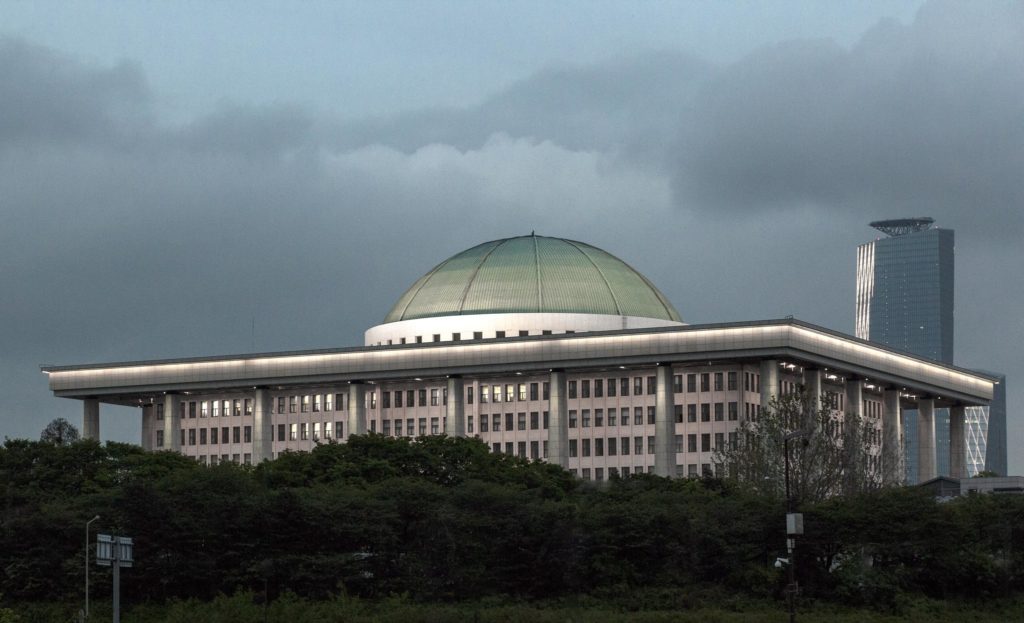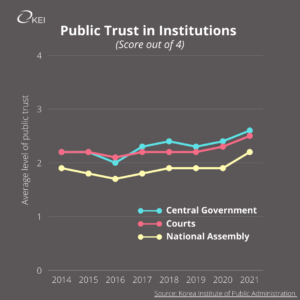The Peninsula
Partisanship Discourages Responsive Policy

It took 53 days of legislative vacuum for South Korea’s two political parties to finalize committee chair appointments for the second half of the 21st National Assembly. While immediate points of tension such as wrangling over a new police support organization may have shaped the partisan divide, these deadlocks are a perennial issue in South Korea’s National Assembly.
The underlying issue is the public’s alienation from the political process. Partisan infighting diminishes public trust in the National Assembly as an institution serving the public interest. Moreover, while the South Korean public remains predominantly centrist, the legislature has become more polarized over the years. This ideological gap amplifies public disaffection by undermining public confidence in the legislature’s ability to advance their policy priorities. The resulting detachment can be observed in the decline in the number of petitions submitted to the National Assembly. But the diminishing probability of disillusioned centrists voting in elections compared to partisans embolden political elites to focus on attacking the opposite party rather than responding to the public’s policy demands. This results in more fights over political capital such as committee chairmanships.

Structural factors exacerbate the growing detachment. Although the National Assembly Act states that committee chairs are to be appointed through a vote in the plenary session, the vote remains a formality after inter-party negotiations in that not a single candidate has been voted down since 2004. Moreover, the two-year cycle for committees makes it difficult for members to build committee expertise or represent constituency interests over party platforms.
This briefing comes from Korea View, a weekly newsletter published by the Korea Economic Institute. Korea View aims to cover developments that reveal trends on the Korean Peninsula but receive little attention in the United States. If you would like to sign up, please find the online form here.
Korea View was edited by Yong Kwon with the help of Jae Chang, Kaitlyn King, Yu Na Choi, and Mai Anna Pressley. Picture from the flickr account of Lig Ynnek.
